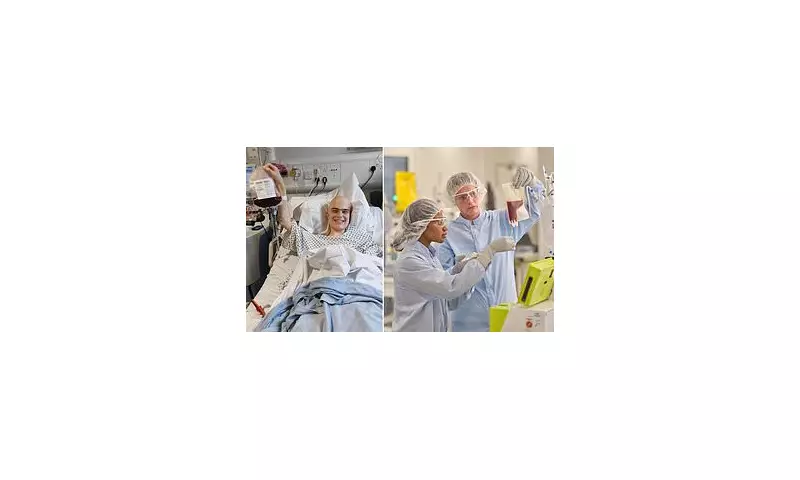
In a landmark decision for cancer care in England, the NHS has approved a 'next generation' immunotherapy treatment that holds the potential to cure a specific form of leukaemia.
The therapy, known as obe-cel (obecabtagene autoleucel), is a type of CAR T-cell treatment that was entirely developed in the United Kingdom. It represents a significant step forward in the fight against cancer by genetically modifying a patient's own cells to empower their immune system to recognise and destroy cancerous invaders.
A Lifeline for Patients with Limited Options
The National Institute for Health and Care Excellence (NICE) has officially recommended obe-cel for use within the NHS for individuals aged 26 and over. This approval is specifically for those battling relapsed or refractory B-cell acute lymphoblastic leukaemia (ALL), a rare and aggressive blood cancer.
According to the watchdog, this decision could benefit more than 150 people over the next three years, offering a crucial new option where previous treatments have failed. The therapy is administered just once in a lifetime, typically as two intravenous doses given ten days apart at specialised CAR T-cell centres across England.
Impressive Clinical Trial Results and Patient Hope
Evidence supporting the treatment's efficacy is compelling. A clinical trial involving 94 participants demonstrated that 77% of patients given obe-cel went into remission. Remarkably, over half of those individuals showed no detectable signs of cancer after a follow-up period of three and a half years.
The therapy not only increases the chances of remission but is also associated with fewer severe side-effects compared to other available treatments, making it a more tolerable option for patients.
Harry, a 19-year-old student from Harrogate who received obe-cel during the 2024 clinical trial, shared his experience. "I feel so lucky to have had access to such a wondrous treatment," he said. "Not only did it work better than my doctors thought it would, it worked without many of the horrible side-effects." He emphasised that the biggest thing it offers is hope, which he described as the most valuable asset when facing such a dire diagnosis.
British-Made Medical Breakthrough
Obe-cel was developed by Autolus, a commercial spinout company originating from University College London (UCL). This homegrown innovation has been hailed as a major success story for British medical science and the NHS.
Helen Knight, director of medicines evaluation at NICE, stated that the treatment 'offers real hope to people living with this rare and aggressive blood cancer'. She added that it provides a more effective and less toxic alternative with the potential to be life-saving, significantly reducing time spent in hospital.
Professor Peter Johnson, NHS national clinical director for cancer, called it a 'cutting-edge therapy' and 'living medicine' that guides a patient's own T-cells to kill the cancer. Health minister Ashley Dalton and Fiona Hazell, chief executive of Leukaemia UK, also celebrated the approval as a pivotal moment that will expand crucial treatment options and demonstrate the NHS's role at the forefront of medical innovation.






